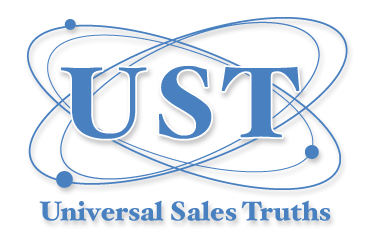In my humble opinion, as professional salespeople, many times we focus all of our energy on the technical benefits of our product, how we compare to the competition, and the cost-benefit analysis. The technical aspects and cost are certainly critical to the sale, but I still believe that a portion of the sale is based on emotion.
Take a moment to think about how you can paint a picture in the mind of your prospect about how good life will be after he or she purchases your product. Said another way, sell the experience — not the product.Regardless of the product or service we sell, are we fully taking advantage of the emotional factor associated with the sale? Emotions are certainly not the only reason a product sells, but it’s hard to argue that there is no emotional component in professional sales.
Take a moment to reflect on the television commercial for Dos Equis beer. Is there any mention of the way the beer is crafted in Mexico? Is there any mention of its taste? How about calories or its heritage? The tagline “Stay thirsty, my friends” could be used for any beverage, not just beer. How about the commercial for Corona beer? “Find your beach.” People leaving work in the middle of winter in New York City stick a lime in a Corona and feel like they are drinking on a beach. Again, no mention of the quality of the beer, its flavor or its ingredients? Have you noticed how Lincoln is using Matthew McConaughey in its commercials? No narrative on the features and benefits of the vehicle. Simply a glimpse of how good-looking life would be if you purchased the car.
So what can we learn from this marketing/sales strategy? We can learn that smarter folks than me have figured out that emotions and perceived experiences play a major role in buying decisions. In other words, they are selling the experience, not the product.
Certainly the more generic the product, the more it’s important to use emotions, but it’s clear that with any product we should be mindful that emotions play a role in the decision-making process.
As professional sales executives, too many times we get caught up in the features, benefits, competitive comparisons, pricing models, objection handling, cost-benefit analysis, detailed proposals, industry experience, quality references — the list goes on and on. While all of these components of the sales process could be valuable, sometimes a more simple and direct approach might be the deciding factor in winning the business.
Take some time to think about how you can articulate to your prospect how good life will be after the purchase of your product. And then try to attach an emotional component to it.
If I were to use this philosophy as a Dell EMC sales exec, instead of focusing on the technical aspects of our storage arrays — such as redundancy of the disk drives and the proprietary software that stages data in cache memory to deliver access speed much faster than IBM disk drives, or the dial-home feature that alerts our technicians of failed components — perhaps I could have told a story about how things would be different after the installation of EMC data storage.
I might have painted a verbal picture to the chief information officer about how good life would be after he installs EMC data storage. I could have talked about how nice it will be to never receive calls on the weekend because a disk drive failed and critical data was lost. Or how he will be viewed as a visionary by his peers for replacing antiquated IBM disk drives with state-of-the-art EMC storage arrays. Or how his internal users will be able to access critical data much faster, to facilitate business decisions. By approaching the decision-maker in this fashion, you are appealing to the emotional component of the sale.
Never forget, at the end of the day, regardless of the product we sell, we are still selling to people. And people are not robots; they have emotions and relate to positive experiences. Think about how your product’s value proposition connects in this way. Then paint a verbal picture to your prospects describing how good life will be if they buy your product. This strategy might separate you from the competition. It’s certainly worth a try.
SELL THE EXPERIENCE!
UNIVERSAL SALES TRUTH #2
Use words carefully, think before responding!
Proverbs 18:21
Words kill, words give life;
they’re either poison or fruit — you choose.

